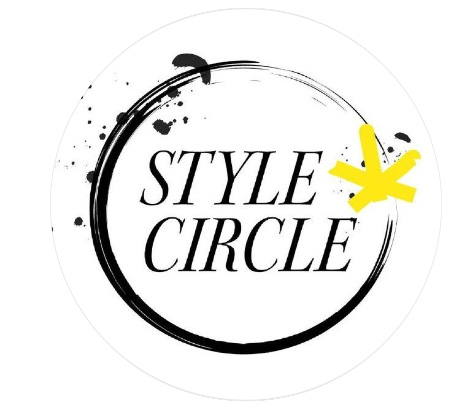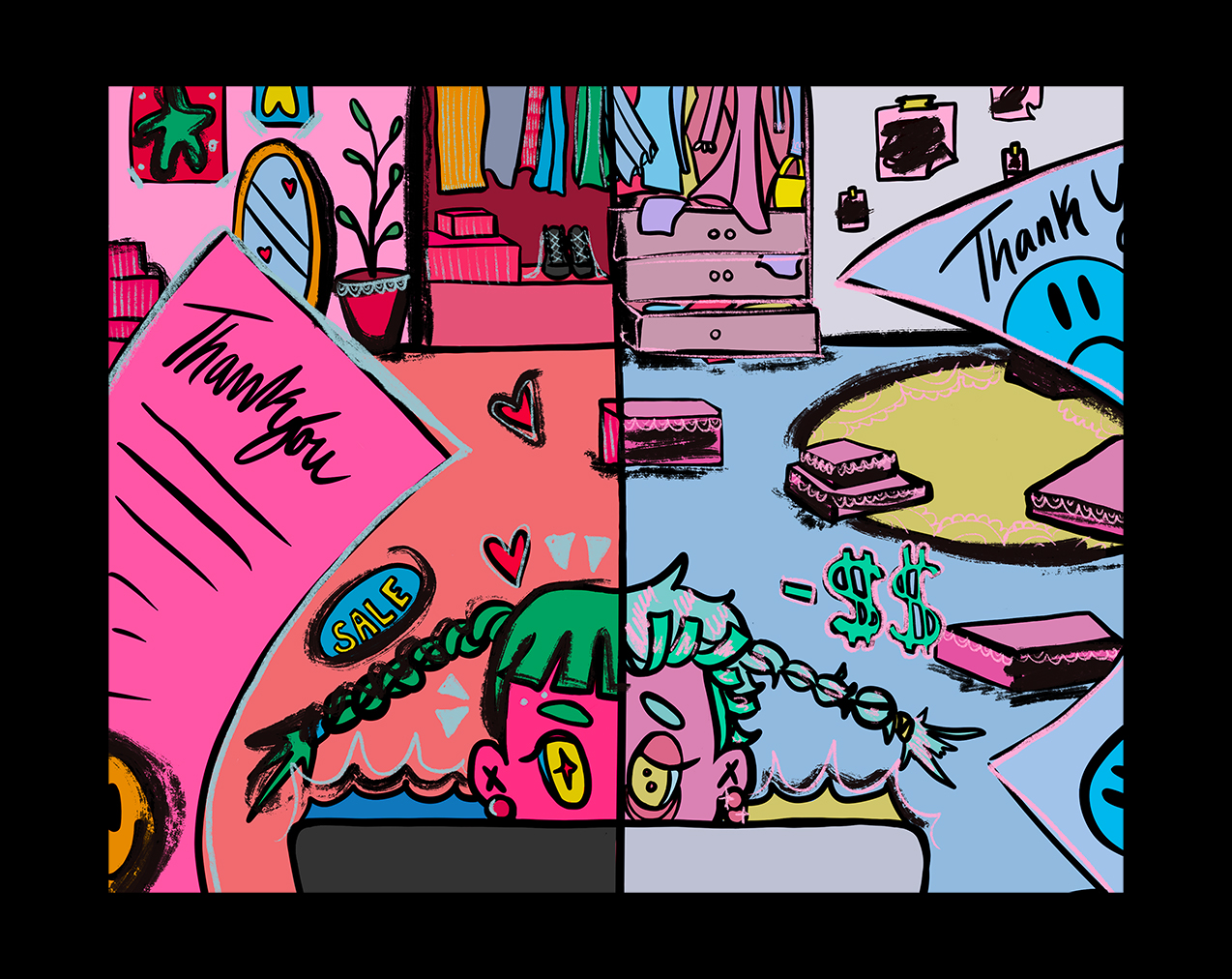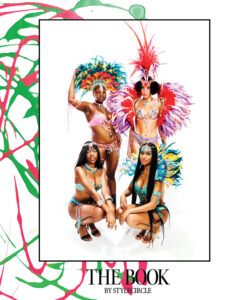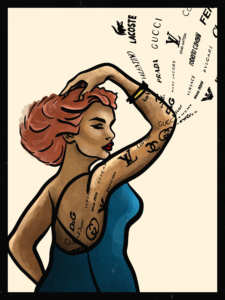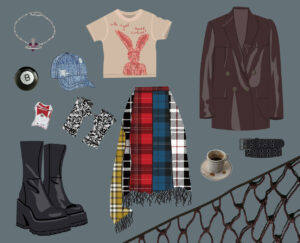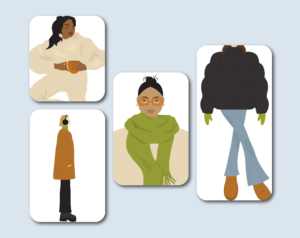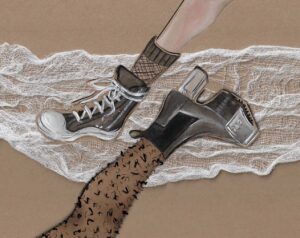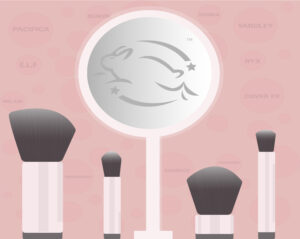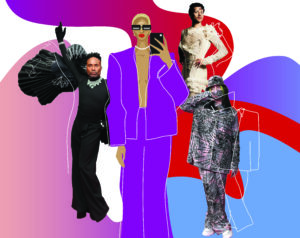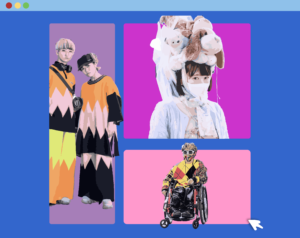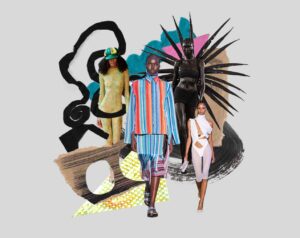GRAPHIC DESIGN Nevi Gaetan
For a long time I felt an immense amount of guilt when buying things for myself, especially pricier purchases. While I was so uncomfortable with the idea of making a purchase solely for my own enjoyment, I was a different person when it came to spending for others. I loved surprising my partner, family, and friends with little things on a frequent basis; I’d go overboard planning events for others and spending an arm and a leg to make them as happy as I could.
With this mindset, my attitude towards seldomly spending for myself leaked into the way I measured my self-worth. I never thought to question it, until I started feeling undeserving of more than just retail therapy.
Having recently lost so much, I began over analyzing how essential it was for me to invest in anything but trying to get my life back on track.
When the beginning of the pandemic hit, I lost a lot. I lost a dream internship opportunity, the ability to see loved ones, maintain natural social skills, and rapidly move to the next phase of my life without feeling uncertainty. The terms “non-essential” and “essential” were thrown around a lot at the time. Having recently lost so much, I began over analyzing how essential it was for me to invest in anything but trying to get my life back on track.
A 2019 study conducted by Slickdeals revealed the second biggest reason American consumers were guilty about purchasing something was because they felt there could have been a better use for their money.
This is where I’ve found myself countless times: “I should be putting this money aside for savings, and investing in the future.” I’ve constantly struggled with the idea that money spent for my own enjoyment could be put towards something more valuable. With this in mind, every purchase not spent on myself constantly reminded me I wasn’t valuable enough to enjoy things.
The same study did find a silver lining to guilt-free spending acceptions: when you’re spending on someone other than yourself. 70% of survey participants reported feeling less guilty about spending for others.
Spending money on myself seemed irresponsible and unnecessary, but spending on someone else was a natural way to fill the void and control the extent of my value to others. So I began spending a majority of my money on the people in my life, and I couldn’t stop.
Deep down I knew I couldn’t stop spending on others. If I did, I’d be forced to examine my own life and think about myself, which is something I was terrified of doing at the time.
A major turning point for me was the day I rediscovered my happy place during quarantine—Disney.
I began rewatching all my favourite films, looking at pictures from past trips to Disney World, and fantasizing about returning to the parks again. The nostalgia I experienced in this time led me back to my happy place—cartoons with sappy messages, travel, and re-living memories.
I started planning on saving for future trips and browsing online Disney memorabilia that reminded me of my childhood. For the first time in awhile, I began spending and purchasing things that made me content—items that connected me to my happiness again.
The joy I associated with each Disney-inspired purchase slowly erased the familiar feeling of spending guilt. I finally understood why I was spending money on myself; it made me happy and for the first time, happiness was enough.
In some ways, losing spenders guilt on myself extended an olive branch I needed to reach my self-worth and self-value again.
In some ways, losing spenders guilt on myself extended an olive branch I needed to reach my self-worth and self-value again. Rediscovering this was the start of a healthier relationship with my spending and myself—one that put my needs above others and wasn’t afraid for others to see I knew I deserved the world.
With this newfound self realization, I do find myself going overboard at times and binge-buying, which is just as unhealthy and debilitating as not spending enough on yourself. So how do I measure my spending limits, especially as someone who’s measured their self-worth by how much they treat themselves? Balance and self reflection has been the main contender.
I’ve given myself a set limit that needs to remain in my bank account and used towards savings. If I deplete more than this amount, I know I’m going overboard. I consider this my way of checking and bringing myself back to reality in extreme spending scenarios. If I’m buying for others, I always ask myself my intentions in doing so; am I buying this to gain that person’s validation, or is it something I genuinely want to do for them without ulterior motives?
While I don’t believe spending is the be-all end-all to a secure relationship with myself, I do believe that developing a healthier relationship with my spending habits has allowed me to rediscover the importance of balance and self-worth in all aspects of my life. I deserve to reward and celebrate myself, without feeling guilty or anxious about it.
Recognizing spending balance and moderation means I won’t go overboard or try to buy validation, but it also means that buying a pair of shoes after a mentally draining week is enough. Sometimes we need to give ourselves a bit of a break and nurture ourselves the way we wish someone else would.
Be that reassurance for yourself. Buy the shoes, it’s okay—you deserve it.
